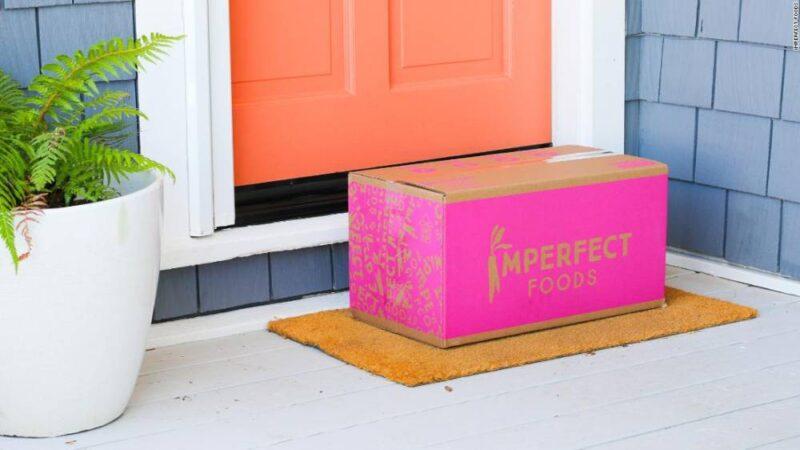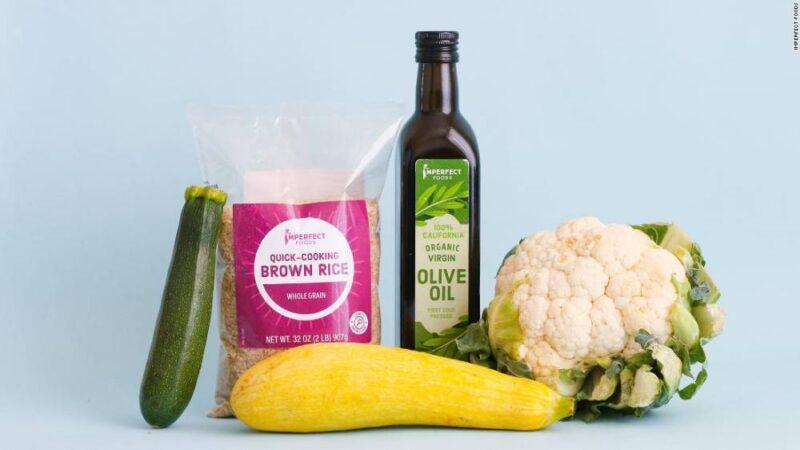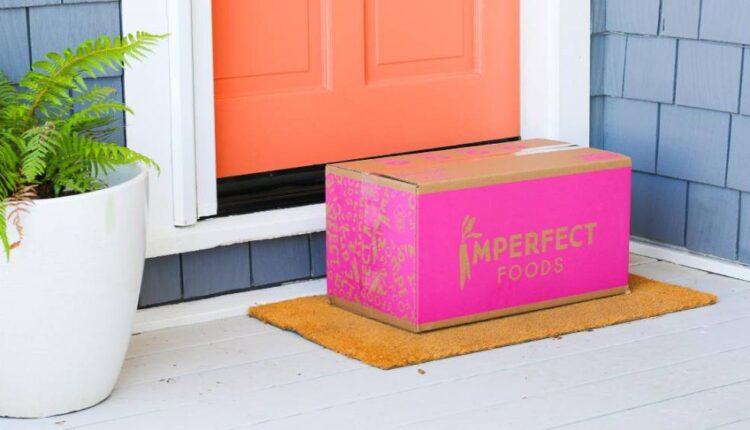New York (CNN Business)When the pandemic hit the United States in March, Imperfect Foods found itself scrambling to keep up with a sudden spike in demand.
In early 2020, the five-year-old online grocery startup was delivering about 100,000 food boxes a week. By May, that weekly figure had doubled. From June to August, weekly orders have remained at about 200,000 to 210,000 per week. On average, order sizes have doubled year over year. The surge shouldn’t come as a surprise. Imperfect Foods, an online subscription service that sells discount “ugly” fruits and vegetables along with staples like baked goods, meat and dairy, is in many ways a business fit for the coronavirus era. Its model appeals to shoppers desperate for groceries who have turned to online offerings to avoid long lines or crowds at the supermarket.

Imperfect Foods boxes are delivered once a week or every other week. Investors see an opportunity. Imperfect, which is private, announced a $72 million round of funding in June. It has raised about $119 million altogether. One of Imperfect’s competitors, Misfits Markets, announced an $85 million funding round in July, bringing it up to about $101.5 million in total. Imperfect has more than 400,000 US customers, and says it’s seeing thousands of new subscriptions daily. Read MoreHere’s how it works: Customers subscribe to Imperfect Foods and select a box of either regular or organic produce. During a designated shopping window, they customize their boxes by adding or removing grocery items that are currently available on the platform. They pay per item, like a regular grocery store, and there’s a shipping fee per each order. Items often cost up to 30% less than what they would at a mainstream retailer. Boxes are delivered weekly or every two weeks. Imperfect sells produce that is “too small, too big, too crooked, and too scarred” for traditional retailers, according to its site. It buys that produce from farmers who might otherwise throw it away. “The combination of affordability, convenience and the sustainability of our products was a very powerful driver for customers during the early phases of pandemic,” said CEO Philip Behn. Plus, the service has benefited from the boom in ecommerce, especially in grocery. Research firm Mintel estimates that online grocery sales will grow about 28% in 2020, more than double last year’s growth rate. In 2025, Mintel expects online grocery sales to reach $137.6 billion, compared to about $85.5 billion this year. And according to an estimate from IBM Services, the pandemic has sped up consumer shifts toward e-commerce by about five years. For Imperfect, that means continuing to grow at a rapid pace.
A year of growth
Last year, Imperfect Produce became Imperfect Foods and announced a plan to expand its offerings: In addition to selling fruit and vegetables that are rejected by mainstream retailers — but are safe to eat — it would also sell other types of groceries, including overstock and other misfit items. Imperfect, which says that its business helps reduce food waste while lowering costs for customers, explained at the time that the new assortment would allow customers to do more or even all of their grocery shopping through its platform. So Behn was already expecting 2020 to be a year of growth. The pandemic surge caught him by surprise. “We had to scramble for a couple of weeks,” he said. One problem was that while orders grew, workers became harder to find. “‘We saw two things happening at the same time,” Behn explained. “We saw customer demand going through the roof … but at the same time we saw a lot of labor disruptions.”

Imperfect Foods now sells grocery items, in addition to produce. Imperfect added an overnight shift to keep its six packing facilities operating 24 hours a day. The new shift meant that some people who had other responsibilities during the day were able to work nights. Imperfect has made about 780 net new hires since March, and employs about a total of 1,600 people. The company has also struck up deals with new suppliers. After government restrictions forced closures across sectors this spring, Imperfect sold cheese trays designed for commercial flights, popcorn kernels meant for movie theaters and individually packaged granola that would, under normal circumstances, have gone to college dining halls, and more. “The relationships that we built that came out of necessity and opportunity have turned into pretty good relationships,” Behn said. “These tend to be companies that are not used to dealing with very large, formal retailers. They don’t sell to the usual suspects,” he said.
The unexpected demand led Imperfect to expedite its spending.”We’re in the middle of building out additional capacity in our pack centers,” Behn said, using automation and conveyor belts to speed up production. That means “we have had to accelerate our capital investment plans that were slotted for 2021, and in some cases 2022, and start them already in 2020,” he added. “We’re very focused on serving more customers.”
Source: edition.cnn.com

